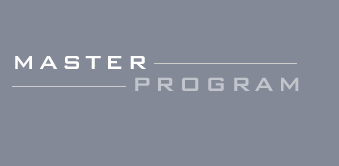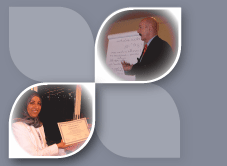|
Curriculum details
of the four sessions of the postgraduate course in Geriatrics
and Gerontology
Session 1: Principle of Geriatrics
Care
| Demography
Epidemiology of ageing |
Epidemiology,
Gender differences
Population projections, expected/projected
Prevalence and incidence of diseases/disorders present
& Future
Heterogeneity of the older population. |
| Ageing
process and physiology of ageing |
Age related
changes in systems/organs
The nature of ageing
Consequences of ageing
Difference between chronological and biological ageing
Theories of ageing |
| Impairment,
disability and handicap |
An understanding
of the concepts and their implications for an ageing
population. |
| Prescribing
drugs |
Appropriate
prescribing and adherence
Pharmacokinetics and pharmacodynamics in old age
Polypharmacy
Under-prescribing
Drug interactions |
| Principles
of Modern Geriatrics |
Geriatric
Assessment including:
Medical, affective, cognitive, functional status,
social support, economic, and environmental.
Assessment instruments
MMSE , ADL, IADL , RAI-instruments, care planning,
CAPs, neuropsychological assessment, nutritional assessment,
clinical pathways,
clock test, Barthel index, GDS, Hamilton, pain scale;
Physical Examination & Diagnostics
Tests, such as up-and-go, balance tests, neurological
tests, etc.
Technical imaging: MRI, etc. |
Session
2: Geriatrics Giants Update
Geriatrics
Syndromes &
Conditions |
Geriatric
Giants
Incontinence
Delirium
Iatrogenesis, includes consequences of hospitalization
& bed rest
Falls & Fractures
Osteoporosis
Alterations in the special senses including hearing
and vision Impairment including functional
Failure to thrive
Immobility and gait disturbances
Pressure Ulcers
Sleep Disorders
Other important Conditions
Cancer in the elderly: Prostate, Breast
Cardiac: CHF/Ischemic heart diseases/CVS surgery
Stroke
Malnutrition
Pressure ulcers
Fecal impaction,
Postural hypotension
Dizziness/Syncope
Pre-operative assessment |
| Rehabilitation |
General
principles of geriatric rehabilitation, including
those applicable to patients with orthopaedic, rheumatologic,
cardiac, and neurological impairments. These principles
should include those related to the use of physical
medicine modalities, exercise, functional activities,
assistive devices, environmental modification, patient
and family education, and psychosocial and recreational
counseling. |
Session 3: Optimizing
the care trajectories of old patients
| Community
interface |
Community
supports and their appropriate use
Appropriate use of residential care for elderly people
Community resources, prevention of institutionalization |
| Ethical
Issues |
Advance
Directives
Limitation of treatment, competency, guardianship
Wills and durable power of attorney
Decision-Making Capacity
Euthanasia, Assisted Suicide
Health Care Rationing
Palliative care & Pain Management
End-of-Life Care |
| Cultural
aspects |
Participants
should be familiar with the influence of culture and
ethnicity on the aging process, health and disease
perception, and access to medical care |
Health
Care
System |
Health
Care Financing: Mechanisms and Implications
Health services issues, health settings, health systems
WHO, country health policies
Home care/community care/general practitioners/nursing
home care/community services/primary health care
Needs assessment for services
Quality of care, quality indicators |
Abuse
&
Neglect |
Institutional
Abuse
Physical abuse
Abuse and neglect of elderly, mentally frail people
Abuse, neglect and the Complaints system
Social services ‘Response to Abuse and neglect’
Acute care v Chronic care- where is the government
heading with elderly care? |
Session
4: Mood and cognitive disorders
| Psycho
Geriatrics |
Psychopathology,
including:
Dementia
Affective disorders
Psychotic disorders, anxiety disorders,
Responses to medical illness, and substance abuse.
Under-reporting of symptoms and illnesses
Sexuality and aging
Suicide
Home safety
Adaptation to care in alternative living situations,
Social isolation, social support, caregivers burden |
| Atypical
presentations |
Diseases
that are especially prominent in the elderly or that
have different characteristics in the elderly, including
neoplastic, cardiovascular, neurologic,
musculoskeletal, metabolic, and infectious disorders. |
| Health
promotion |
Primary
prevention
Exercise, nutrition, vaccination etc
Secondary Prevention
Age appropriate screening & detection
Tertiary prevention strategies
Rehabilitation &chemoprophylaxis |
Current Faculty
(click
for pdf)
|







